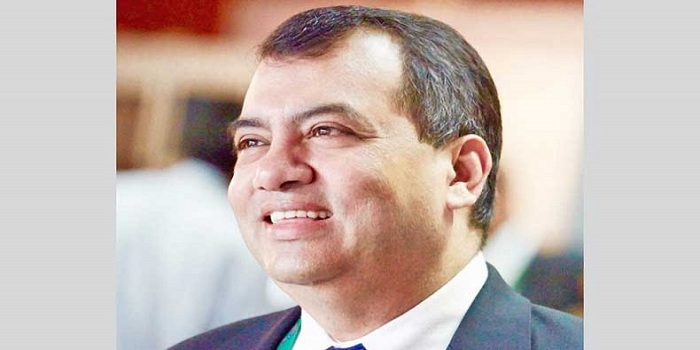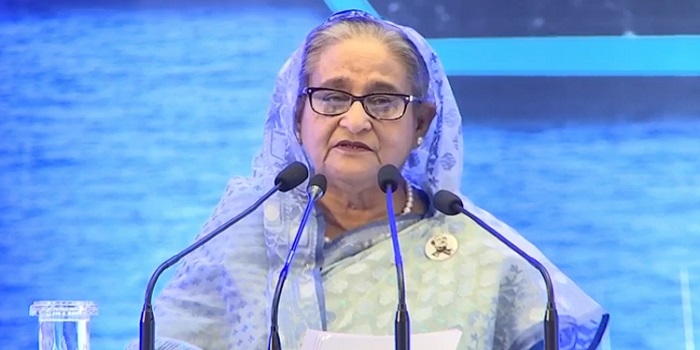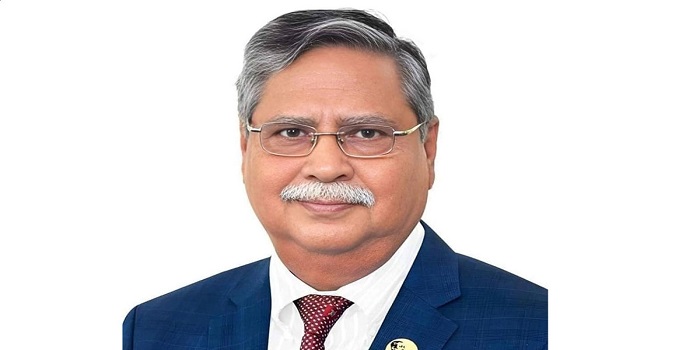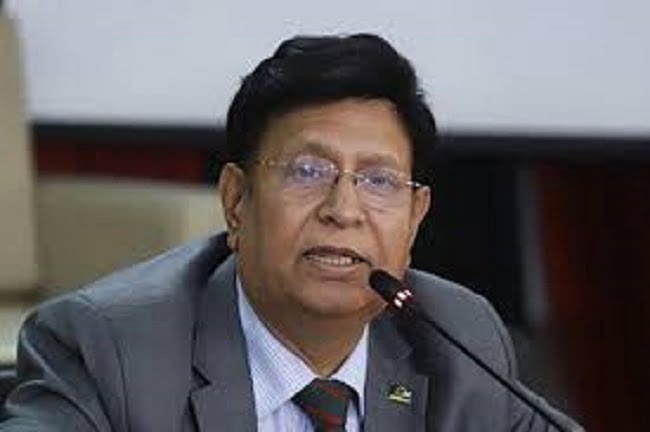PM offers SEZ for US businessmen, seeks larger investment in Bangladesh
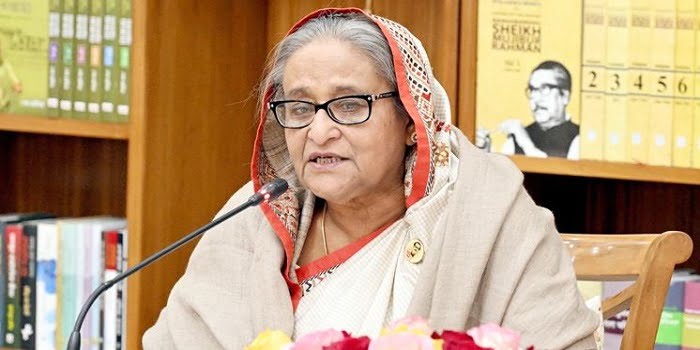
Prime Minister Sheikh Hasina on Tuesday called upon the US business community to invest largely in Bangladesh’s renewable energy, shipbuilding, automobile and pharmaceuticals sectors, reiterating her offer of a dedicated ‘special economic zone’ (SEZ) solely for them, reports BSS.
“I invite you to invest in our many vibrant and high-potential sectors, such as renewable energy, shipbuilding, automobile, pharmaceuticals, light and heavy machineries, chemical fertilizers, ICT, marine resources, and medical equipment, among others,” she said.
The Prime Minister also called upon the US business leaders to explore opportunities and invest in Bangladesh.
She made this call while presenting a keynote speech at a high-level executive business roundtable on “US-Bangladesh Economic Partnership: Shared Vision for Smart Growth.”
The Bangladesh Prime Minister also inaugurated the US Bangladesh IT Connect portal (us.itconnect.gov.bd) at the event.
The US-Bangladesh Business Council organised the event at the Great Hall of the US Chamber of Commerce Washington, DC.
The Prime Minister hoped that the US-Bangladesh Business Council will play a significant role in advancing trade and investment cooperation between the two friendly countries.
“I also call on you here today to remain and be with us as partners in our journey to a developed, prosperous, and Smart Bangladesh by 2041,” she said.
She said Bangladesh is currently setting up 100 ‘Special Economic Zones’ (SEZs), and 29 Hi-tech Parks in the different parts of the country.
The premier reminded again about Bangladesh’s most liberal investment policy status in the region. It includes foreign investment protection by law, tax holiday, remittances of royalty, unrestricted exit policy, full repatriation of dividend and capital on exit, she said.
“I assure you that we are giving topmost priority to improving our investment environment,” she added.
She mentioned that Bangladesh Investment Development Authority is implementing the “Bangladesh Investment Climate Improvement Programme”.
“The United States can be Bangladesh’s most robust partner. It is currently the largest single country destination of our exports, largest source of foreign direct investment, a long-standing development partner, and an important source of training and technology,” she said.
Sheikh Hasina said she is optimistic that the United States would become Bangladesh’s long-term productive partner in this challenging venture through trade, investment, technology transfer, and by creating a smooth and predictable supply chain for mutual benefits.
Describing the United States as a major economic and development partner of Bangladesh, she said booth countries have intensive engagements in many areas, including trade and investment.
“Our shared aim is to achieve mutual benefit and prosperity for our peoples. This is evident in our growing bilateral trade, and people-to-people interaction. In 2021-2022,” she said, adding Bangladesh exported commodities worth US$ 10.42 billion to the United States, and imported goods worth US$ 2.8 billion.
Referring to an example of Japan’s proposal to develop an industrial hub in Bangladesh along the coastal belt, she said, “Our focus, therefore, now is to promote economic and commercial relations with regional and global partners, including the United States.”
The premier said their efforts have led to Bangladesh making remarkable socio-economic growth over the last 14 years.
“It is now universally acknowledged as a “Role Model of Socio-Economic development”, she continued.
This has also been possible due to the continuity of good governance, rule of law, and stability, investment in rural economy, empowerment of women, and ICT that led to “Digital Bangladesh”, she said.
This is why lately the brand value of Bangladesh has been growing fast, she said, adding that in Brand Finance UK estimate, Bangladesh’s brand value recorded 37 percent growth last year, that is, the highest in the world, placing it next to India, among South Asian countries in Global Soft Power Index 2023.
“Our vision is to build a “Smart Bangladesh” by 2041. This vision is beyond becoming a high income developed country by 2041, she said.
She added: “Smart Bangladesh is about being inclusive and founded on its smart citizens, smart economy, smart government, and smart society.”
PM’s ICT Affairs Advisor Sajeeb Wazed, State Minister for Power, Energy and Mineral Resources Nasrul Hamid among others spoke on the occasion while Chairman of Board of Directors of U.S.-Bangladesh Business Council Board and also president of Excelerate Energy Steven Kobos, Global Chair Emeritus of Boston Consulting Group (BCG) Hans-Paul B?rkner, Senior Vice-President of Global Public Policy and Indo-Pacific Policy Operations at Mastercard Ravi Aurora, Founder and Chief Executive Officer of bKash Kamal Quadir, President and Managing Director of Chevron Bangladesh Eric Walker and Global Head of Exploration and New Venture at ExxonMobil Dr John Ardill also present at the high-level roundtable meeting.
President of U.S.-Bangladesh Business Council and Senior Vice President-South Asia at U.S. Chamber of Commerce Ambassador Atul Keshap delivered the welcome remarks.
Besides, Foreign Minister Dr AK Abdul Momen, Planning Minister MA Mannan, and PM’s Private Industry and Investment Affairs Adviser Salman Fazlur Rahman, President of Boeing India and South Asia Saill Gupta, Head of South Asia at U.S. Soybean Export Council Kevin Roepke, Head of Public Policy and Government Affairs-Asia Pacific of UBER Mike Orgill, Vice President of South Asia at U.S. Chamber Of Commerce Ryan Miller, Executive Director of U.S. Chamber of Commerce Sandeep Maini and Director of U.S.-Bangladesh Business Council Sidhanta Mehra were present.
The Prime Minister earlier attended separate meetings with USBBC senior executives, the US Chamber and Commerce President and CEOs at the Briefing Centre at the US Chamber of Commerce here.
Sheikh Hasina said Bangladesh celebrated the 50th anniversary of its independence in 2021 as a proud lower middle-income country.
“It is today the fastest growing economy in South Asia, and the 35th largest economy of the world. Projections are this economy will become the 25th largest economy by 2030,” she said.
She said that Bangladesh is already a trillion-dollar economy in terms of purchasing power. It is on course to be in a few years a trillion-dollar economy in nominal terms, she added.
“Our socio-economic development policies have taken Bangladesh ahead of our South Asian neighbours in many areas,” she said.
Bangladesh’s per capita income is higher than its larger neighbours, she said.
She continued that the World Economic Forum has rated Bangladesh as the top South Asian country in women empowerment, and globally among top ten countries in political empowerment of women.
The Prime Minister said that Bangladesh is a market of 170 million and its geographical location puts it in the heart of a market of 3 billion.
“Bangladesh has now emerged as an ideal place for trade and investment in the region, and beyond. Meanwhile, our physical, legal, and financial infrastructures are being improved,” she said.
The premier noted that their efforts to sustain overall growth through investments in infrastructure are visible across the country.
“Last year, over the large Padma River, we built with own fund, our longest bridge, now an important feature in regional development,” she said.
The Prime Minister said her government had also built metro rail, and improved port infrastructure, including deep seaport. These have heightened domestic and regional connectivity.
“Our climate responsible growth policy, labour reforms, and improvement in labour safety standards deserve appreciation,” she opined.
Bangladesh proudly hosts 53 of the world’s top 100 green garments factories certified by the US Green Building Council (USGBC), she said, adding that Bangladesh will be graduating from “least developed” to “developing” country in 2026.
“For this, we shall need support to increase our global competitiveness, and expand the export base,” said the premier.



